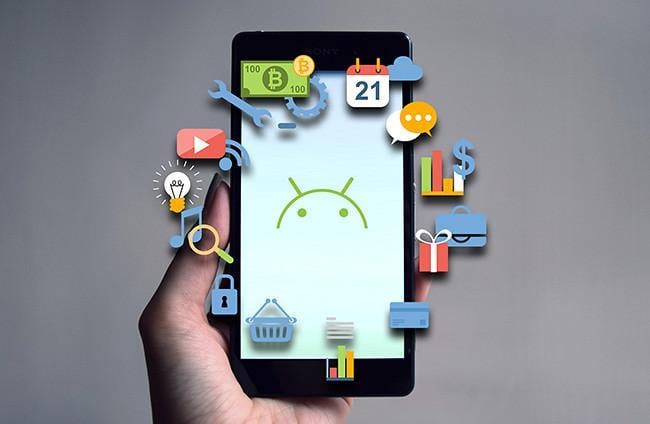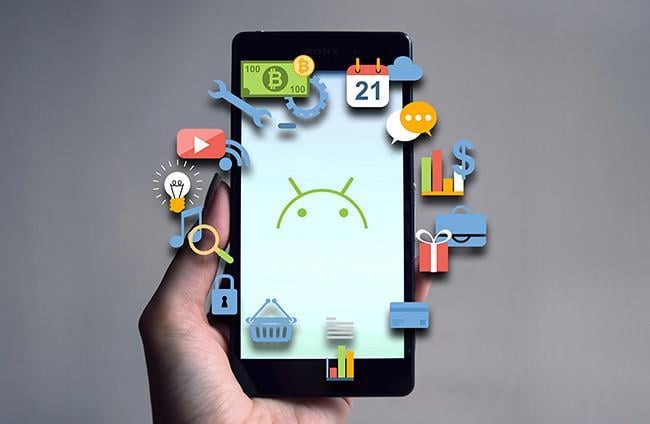8 reasons you should have an Android presence
The “iOS vs Android” has been an age old battle. iOS has been considered better for monetizing, superior design and usability. Google is trying to...
3 min read
Benjamin Shepardson : Sep 6, 2019 12:00:00 AM


Back in 2016, Google introduced the new Android Instant app platform, and ever since we’ve been in a brand new world of mobile functionality. There is much to be said about what these instant apps can do, as the ability to run lightweight, agile on-demand apps, all without requiring a user to stop what they’re doing and go to the Play Store for download and installation, provides so many new opportunities to serve those users.
At the same time, Android instant apps aren’t perfect, and there are some real limitations to how they work and what they can do; this means they can be a hindrance as much as a help. When it comes to which circumstances are they best employed, it’s important to evaluate the capabilities of Android instant apps through the lens of a startup. When every decision counts and every last scrap of resources needs to be accounted for, can you risk using this still-nascent technology, or is the Android instant app something that startups should steer clear of using? Let’s take a closer look.
Let’s face it: instant apps are pretty much a complete game-changer. In many cases, the types of functionality they provide, all from a simple web URL, mean that the mobile website might one day be replaced altogether by instant app use. They offer a number of advantages over attempting to entice users to transition from a mobile site to a dedicated native mobile app, especially since the inherent weaknesses of mobile browsers (especially when it comes to feature sets) evaporate when you add instant apps into the mix.
With instant apps loading a responsive, agile app with features and functionalities targeted specifically to what a user needs or wants to do at a specific URL, there’s no need to push users to download a standalone app. This also means that there’s no longer as pronounced a need to entice users to do so by offering incentives in the form of discount codes or freebies. As these tactics were only borderline effective, not having to spend time and resources on them frees developers to focus on other, perhaps more important things.
In the world of startups, any time you can safely cut back on or eliminate extraneous tasks, the better. This makes using Android instant apps quite attractive for a startup who no longer has to think up an entire strategy for sending prospective mobile web users to the Play Store, download their standalone app, and then allow it to install just so they can register a new account. Eliminating this major hurdle can speed up the adoption process for a startup’s core product or service, giving the company the boost it needs to build momentum.
There’s certainly a strong case for what instant apps can do for a startup when it comes to making development easier and streamlining resource management. Yet as beneficial as they may be, they’re by no means a silver bullet. In fact, using instant apps to solve some problems can sometimes lead to the creation of completely new ones — and this might be bad news for a startup that’s unprepared or unable to manage these new problems. In such cases, constraining startup development to more traditional approaches such as mobile websites or dedicated fully-fledged apps might work more in a startup’s favor.
There’s truth in that customer retention isn’t as big a problem when you’re not trying to convince someone to stop what they’re doing and download a native app. This also minimizes the chance that users are going to throw up their hands in frustration and seek greener pastures at a competitor. But while instant apps obviate these problems, they raise new ones when it comes to long-term consistency and use. As they are loaded dynamically and then deleted when closed, startups can’t gather user data points and then follow up with a promotional email or push notification. This is especially bad news for e-commerce startups, as repeat business is a major driver for success.
There’s another problem with instant apps that can result in bad news for startups. The strict memory requirements that allow an instant app to load dynamically severely limit the quality of multimedia elements that instant app can leverage. While some of these limitations can be circumvented with streaming audio or video, high-resolution still images, such as product pictures, can sometimes be too unwieldy to use. Low-res images are not nearly as effective in these cases, and hardly a strong selling point when all your products are pixelated to the point of unattractiveness.
The question as to whether startups can benefit from using Android instant apps or not is not an easy one to answer. The truth of it is that there will be situations and circumstances that make an instant app an excellent choice for a particular startup, just as there will be times that a startup’s long-term and short-term goals would be better served by turning to a more traditional approach like a native app or even just a mobile website. This may change in favor of instant apps in the future as mobile design capabilities continue to improve and evolve, but for now, there are as many reasons to use instant apps as there are not to use them.
What could change in the future? Faster infrastructure could improve download speeds, which would work in favor of Android instant apps. If Apple develops a similar technology for iOS devices, this will also increase interest in instant app capabilities. Eventually, we may indeed transition to a world where native apps and mobile websites are a thing of the past. For now, though, it’s better to evaluate the needs and capabilities of your startup carefully, look at your goals through the lens of what Android instant apps can do, and make an informed decision from that perspective.

The “iOS vs Android” has been an age old battle. iOS has been considered better for monetizing, superior design and usability. Google is trying to...

At the beginning of mobile application market, iOS application was commanding the market and Apple was a sole restrictive player, that was running...

We just tried out the new Android Studio (early access preview) and so far it seems great!